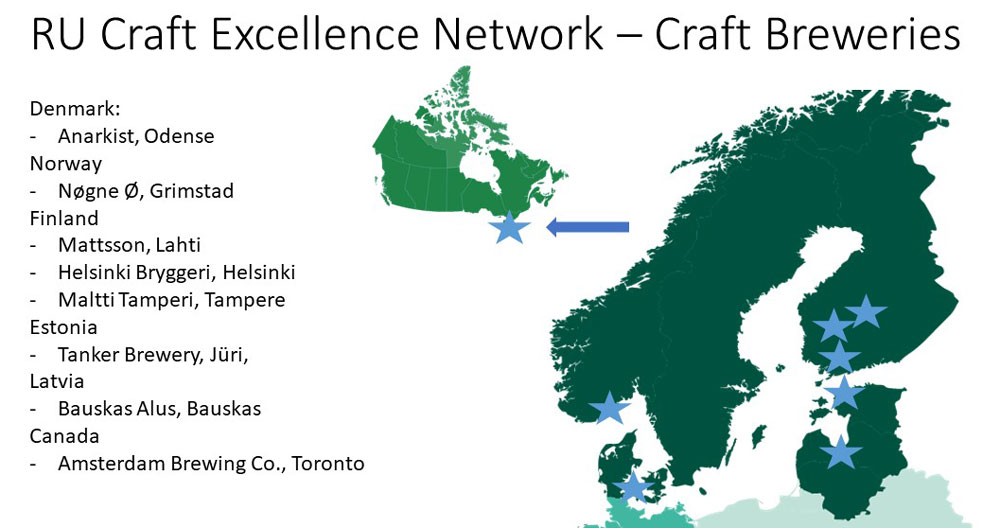Royal Unibrew establishes Craft Excellence Network
Denmark | The integration of acquired craft breweries can prove challenging, especially for major, transnational brewers. At issue is not just where to hook them up inside the organisation. The bigger question is cultural: Is it best to let former independent microbreweries continue to do their own thing, or will they benefit from interaction with other craft brewers within the group?
This question also presented itself to Royal Unibrew, a multi-beverage firm in the Nordics and the Baltics, when, after a string of acquisitions, it suddenly found itself with eight craft breweries in its portfolio. In terms of size, they range from small (5,000 hl -10,000 hl per year), say a brewpub (eg Helsinki Bryggeri) to fairly large (eg Norway’s Nøgne and Toronto’s Amsterdam Brewing Co, which Royal Unibrew bought in July 2022 for USD 34 million).
But in terms of total volume, they are still small compared with Royal Unibrew’s six large breweries: Faxe and Albani in Denmark, Hansa and Borg in Norway, Hartwall in Finland and Kalnapilis in Lithuania, some of which also have their own craft beer ranges.
Craft beers raise Royal Unibrew’s image
Unlike AB-InBev and its US craft beer acquisitions in the past decade, Royal Unibrew does not intend its craft breweries to become the group’s next growth engine. They were acquired to raise Royal Unibrew’s profile in the on-premise and subsequently the off-premise in the Nordics, where punters are increasingly seeking out craft beer brands. In Denmark, in particular, Royal Unibrew needed a different image. Many of its mainstay brands are seen as mass-market, budget brands.
From what we hear, all craft brewery acquisitions were opportunistic. Royal Unibrew did not pursue any of them, yet showed willing to clinch a deal when the seller’s financials proved healthy and its margins attractive. It is understood that the craft breweries are profit-centres in their own right and their performance is measured against Royal Unibrew’s financial KPIs.
Slow and steady
Whilst observers do not rule out that Royal Unibrew will buy more craft breweries in the future, it is group strategy that they may remain a niche, even though an important one, which allows the group to transform itself into a one-stop supplier for its customers.
By setting up a so-called Craft Excellence Network, Royal Unibrew’s craft breweries are invited to meet once a year to discuss issues shared by all, like new product development, new technologies, energy and water consumption (where craft breweries in general have a long way to go) and procurement (there is a group catalogue for malt and hop supplies). In effect, the network is wholly voluntary and above all a platform for exchange.
Different plans for Canada and Italy
There are no plans yet to test launch any of Royal Unibrew’s craft beer brands elsewhere in the group, we were told. This decision lies with group marketing alone.
However, the Canadian craft brewer Amsterdam, given its sizeable capacity, will become a hub for the production of the Faxe brand in North America. The same applies to the recently acquired San Giorgio di Nogaro brewery in Udine, Italy, with a capacity of 700,000 hl per year. It will be used to localise the production of Royal Unibrew’s well-known import brands.
Keywords
microbreweries Denmark craft brewers company news brands international craft beer market
Authors
Ina Verstl
Source
BRAUWELT International 2023


